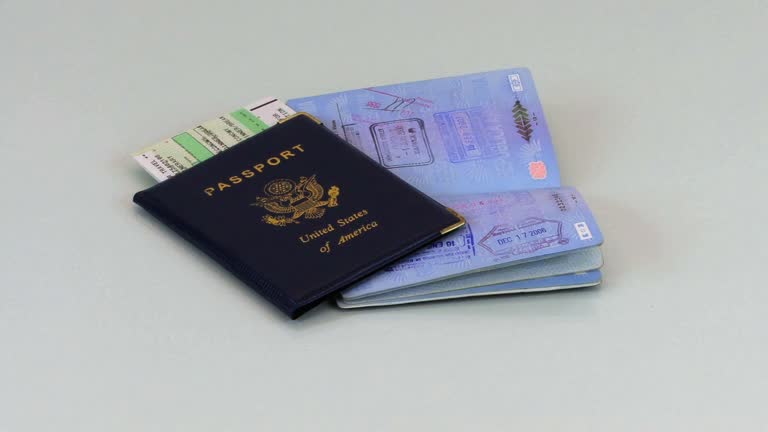As a citizen of El Salvador, your passport is your key to unlocking a significant portion of the globe for tourism, business, or visiting family. As of August 2025, the Salvadoran passport grants visa-free, visa-on-arrival, or eTA access to over 130 countries and territories, making it a powerful tool for international mobility. This guide provides a comprehensive overview of the El Salvador passport visa-free countries, explains different entry requirements, and offers actionable advice for planning your travels.
Where Can Salvadoran Citizens Travel Without a Visa?
Understanding your visa-free access is the first step to planning a seamless international trip. Below is a detailed list of countries and territories, categorized by region, where Salvadoran passport holders can travel without a pre-arranged visa. Note that the permissible duration of stay is subject to change and should always be verified with the embassy of your destination country.
Visa-Free Countries in Europe
One of the most significant advantages of the Salvadoran passport is its visa-free access to the Schengen Area and other European nations. This allows for travel up to 90 days within any 180-day period across most of the continent.
- Schengen Area Countries (29 total): Austria, Belgium, Bulgaria, Croatia, Czech Republic, Denmark, Estonia, Finland, France, Germany, Greece, Hungary, Iceland, Italy, Latvia, Liechtenstein, Lithuania, Luxembourg, Malta, Netherlands, Norway, Poland, Portugal, Romania, Slovakia, Slovenia, Spain, Sweden, Switzerland.
- Other European Countries: Albania, Andorra, Belarus, Bosnia and Herzegovina, Cyprus, Faroe Islands, Gibraltar, Ireland, Kosovo, Moldova, Monaco, Montenegro, North Macedonia, Russia, San Marino, United Kingdom (UK), Vatican City.
Crucial Update for 2025: As of mid-2025, travel to the Schengen Area countries, as well as Bulgaria, Cyprus, and Romania, requires a mandatory ETIAS (European Travel Information and Authorisation System) authorization. This is not a visa, but a pre-travel screening. (More on this below).
Visa-Free Access in the Americas
Salvadoran citizens enjoy extensive visa-free movement throughout North, Central, and South America, and the Caribbean.
- North America: Mexico
- Central America: Belize, Costa Rica, Guatemala, Honduras, Nicaragua, Panama
- South America: Argentina, Bolivia, Brazil, Chile, Colombia, Ecuador, Paraguay, Peru, Uruguay
- The Caribbean: Anguilla, Antigua and Barbuda, Aruba, The Bahamas, Bonaire, British Virgin Islands, Cayman Islands, Curacao, Dominica, Dominican Republic, French West Indies, Haiti, Jamaica, Montserrat, St. Kitts and Nevis, St. Lucia, St. Maarten, St. Vincent and the Grenadines, Trinidad and Tobago, Turks and Caicos Islands.
Visa-Free Destinations in Asia
From bustling metropolises to serene landscapes, Asia offers a diverse range of visa-free options.
- Georgia
- Hong Kong
- Indonesia
- Israel
- Malaysia
- Micronesia
- Palestine
- Philippines
- Singapore
- South Korea
- Taiwan
- Turkey
- Uzbekistan
Visa-Free Travel in Africa and Oceania
- Africa: Botswana, Eswatini (Swaziland), Gambia, Mauritius, Mayotte, Reunion, Sao Tome and Principe, Senegal, Tunisia, Zambia, Zimbabwe.
- Oceania: Cook Islands, French Polynesia, New Caledonia, Niue, Palau Islands, Samoa, Tuvalu.
Takeaway: The extensive list of visa-free countries, especially within Europe and the Americas, gives Salvadoran travelers remarkable flexibility for both short-term tourism and business ventures.
Not Just Visa-Free: Understanding Visa on Arrival and eTA
Visa-free is the simplest form of entry, but you may encounter two other common arrangements: Visa on Arrival (VoA) and an Electronic Travel Authorization (eTA).
What is Visa on Arrival (VoA)?
A Visa on Arrival means you do not need to apply for a visa beforehand. Instead, you receive and pay for the visa upon arriving at a port of entry (like an airport or land border) in the destination country.
Key Countries Offering VoA to Salvadoran Citizens:
- Bangladesh
- Cambodia
- Egypt
- Jordan
- Laos
- Macao
- Madagascar
- Maldives
- Nepal
- Qatar
- Seychelles
- Somalia
- Timor-Leste
- Togo
What is an Electronic Travel Authorization (eTA)?
An eTA is a digital pre-screening required for citizens of visa-exempt countries. It is a simple online application that must be completed before you travel. It is typically approved within minutes or hours.
Countries Requiring an eTA for Salvadoran Citizens:
- Schengen Area (via ETIAS): As mentioned, the ETIAS is the new mandatory eTA for Europe.
- South Korea (K-ETA): Required for visa-free entry.
- Sri Lanka: Requires an online ETA before arrival.
- New Zealand (NZeTA): Required for transit or visa-waiver travel.
A Closer Look: Navigating Europe with an ETIAS
The introduction of the ETIAS is the single most important travel update for Salvadoran citizens visiting Europe in 2025.
The ETIAS Requirement Explained
ETIAS is an automated IT system created to identify security or irregular migration risks posed by visa-exempt visitors traveling to the Schengen Area. It is not a visa. Once approved, an ETIAS is valid for three years, or until your passport expires, and allows for multiple entries.
How to Apply for ETIAS:
- Visit the Official ETIAS Website: Use only the official EU portal to avoid scams.
- Fill Out the Online Form: You will need your passport details, personal information, and answers to some background and security questions.
- Pay the Fee: The application fee is €7 (subject to change) for applicants between 18 and 70 years old. It is free for others.
- Receive Confirmation: Most applications are processed within minutes. You will receive an email confirming your ETIAS authorization. Link it to your passport, and you are ready to travel.
Expert Perspective: The Value of a Salvadoran Passport
“The Salvadoran passport offers significant mobility, particularly within Latin America and Europe. The key for travelers in 2025 and beyond is to stay informed about evolving digital requirements like ETIAS to ensure their journeys remain seamless. Proactive preparation is the new standard for savvy global travel.”
— Isabella Reyes, Global Mobility Consultant
Takeaway: Applying for an ETIAS is a simple but mandatory step for European travel. Do it well in advance of your trip to avoid any last-minute issues.
How to Maximize Your Visa-Free Travel
Having a powerful passport is one thing; using it effectively is another. Follow these steps to ensure a smooth journey.
- Step 1: Verify Your Passport’s Validity. Most countries require your passport to be valid for at least six months from your planned date of departure from that country. Renew your passport if it is close to expiring.
- Step 2: Check Specific Entry Requirements Before Booking. Visa-free does not mean rule-free. Use the IATA Travel Centre or the official embassy website of your destination to check for other requirements like proof of onward travel or sufficient funds.
- Step 3: Prepare Your Supporting Documents. Even for visa-free travel, have these documents handy in digital or physical form:
- Proof of a return or onward ticket.
- Hotel reservations or proof of accommodation.
- Evidence of sufficient funds (e.g., a recent bank statement).
- Travel health insurance.
- Step 4: Understand Stay Limitations. Carefully track your days, especially in the Schengen Area. The 90/180-day rule means you can stay for a maximum of 90 days within any 180-day rolling period. Overstaying can result in fines and entry bans.
Takeaway: Preparation is non-negotiable. A few minutes of research before your trip can save you hours of trouble at the border.
Your Questions Answered: El Salvador Passport Visa-Free Travel FAQs
1.How many countries are visa-free for El Salvador?
As of late 2025, the Salvadoran passport provides visa-free or visa-on-arrival access to over 130 countries and territories. This number can fluctuate slightly based on international agreements.
2. Can I work in a visa-free country with my Salvadoran passport?
No. Visa-free access is almost exclusively for tourism, short business meetings, or transit. Working in a country without the proper work visa is illegal and can lead to severe penalties, including deportation and future entry bans.
3. Do I need an ETIAS to travel to the United Kingdom (UK)?
No. The UK is not part of the Schengen Area and has its own visa policy. Salvadoran citizens can currently visit the UK for up to 6 months without a visa. The UK is developing its own Electronic Travel Authorisation (ETA) scheme, so always check the latest UK government rules before travel.
4. What is the difference between visa-free and visa on arrival?
Visa-free means you can enter a country simply by presenting your passport. Visa on arrival means you must complete an application and pay a fee at the port of entry to be granted a visa.
5. My Salvadoran passport is about to expire. Can I still travel?
It is highly unlikely. Most countries enforce the “six-month validity rule,” requiring your passport to be valid for at least six months beyond your intended stay. Traveling with a passport that has less than six months of validity is a significant risk.
Planning Your Next Trip
The power of the Salvadoran passport lies in the freedom and flexibility it offers. From the historic cities of Europe to the vibrant cultures of South America and Asia, a world of opportunity is open to you. By staying informed about requirements like passport validity and the new ETIAS system, you can ensure your international travels are as exciting and stress-free as they should be.
Further Resources:
To ensure you have the most current information for your trip, consult these official sources:
- Ministry of Foreign Affairs of El Salvador: For official passport and travel advisories.
- IATA Travel Centre: For real-time, personalized international travel document requirements.
- Official European Union ETIAS Website: For all information and the application portal for ETIAS.



